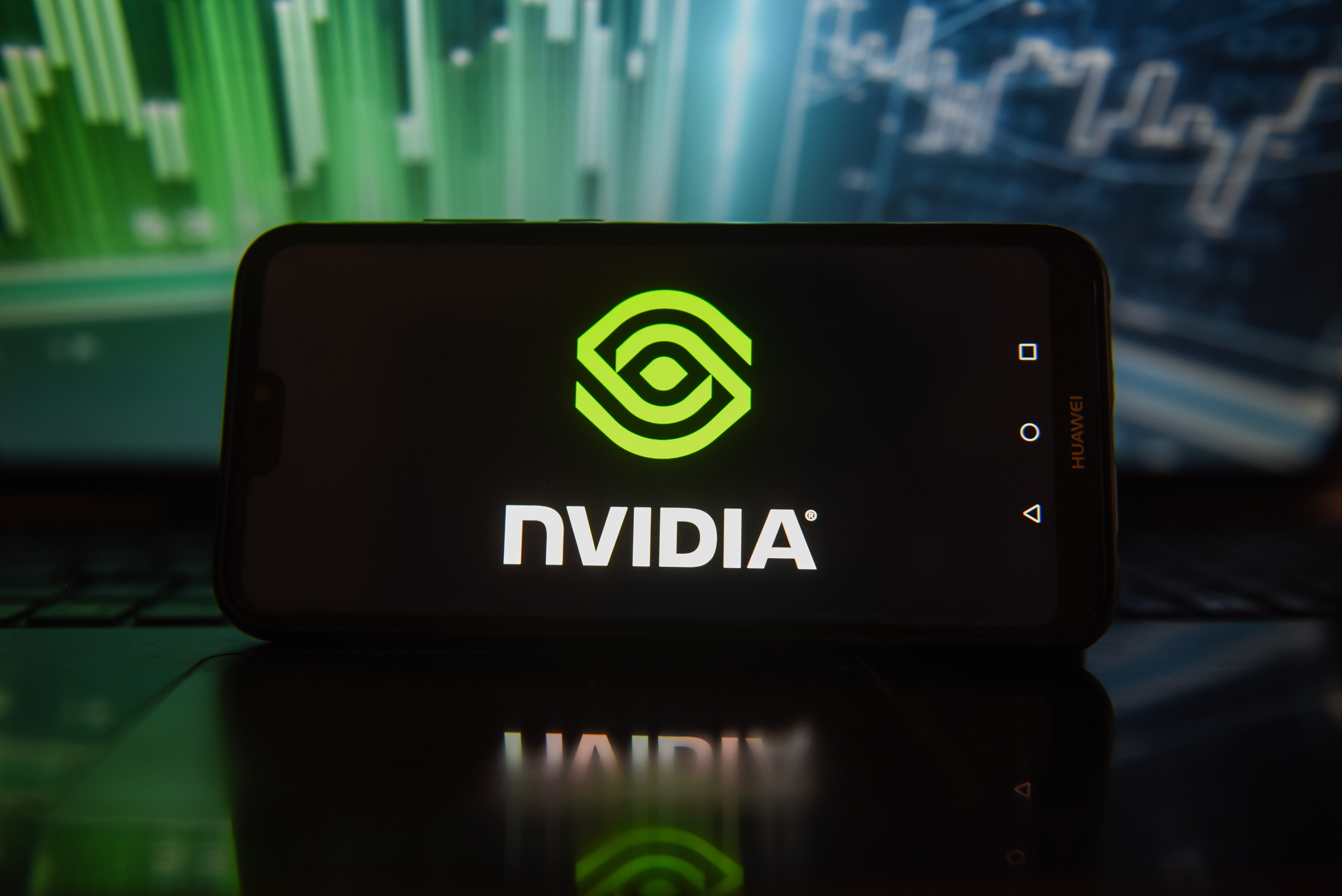The rise of AI chipmaker Nvidia
Why a previously little-known company is nearing a $1 trillion valuation


A free daily email with the biggest news stories of the day – and the best features from TheWeek.com
You are now subscribed
Your newsletter sign-up was successful
While tech companies have faced a reckoning in recent months, there is at least one corporation that is dominating its market, though many people may have never heard of it: microchip maker Nvidia.
What is Nvidia?
The Santa Clara, California, company "engages in the design and manufacture of computer graphics processors, chipsets, and related multimedia software," Forbes explained. Nvidia was founded by three software engineers in 1993 and got its start making graphics processing units (GPUs) for early video game consoles. By the early 2000s, it had won a contract from Microsoft to manufacture chips for its Xbox gaming system, The Washington Post reported.
Then, Nvidia "discovered GPUs can also be used in deep learning AI," Forbes reported. This is a form of artificial intelligence learning that attempts "to simulate the behavior of the human brain — albeit far from matching its ability — allowing it to 'learn' from large amounts of data," according to IBM. It can be used to help improve automation and workplace computers. Nvidia's processors are "exceedingly good at the complex calculations that undergird modern AI systems," The Wall Street Journal reported.
The Week
Escape your echo chamber. Get the facts behind the news, plus analysis from multiple perspectives.

Sign up for The Week's Free Newsletters
From our morning news briefing to a weekly Good News Newsletter, get the best of The Week delivered directly to your inbox.
From our morning news briefing to a weekly Good News Newsletter, get the best of The Week delivered directly to your inbox.
Nvidia first launched into the AI space in 2012. It has continued to expand into a variety of AI and tech spaces, and now owns 95% of the graphics processing market, CNBC estimated. Nathan Beniach, a tech investor who publishes a Substack on the AI industry, called Nvidia's flagship A100 microchip the "workhorse" for the AI-backed community.
The company has seen a meteoric rise in 2023, with a year-to-date stock increase of 160%, from a Jan. 3 price-per-share of $143.15 to a May 28 price of $389.46, Reuters reported. This translated to an added market value of $586 billion, cementing Nvidia as the nation's fifth most valuable company. It is nearing a valuation of $1 trillion. Only five other brands — Google's parent company Alphabet, Amazon, Apple, Microsoft, and Saudi Aramco — have ever achieved this accolade.
What's behind Nvidia's rise?
While Nvidia has been growing its profile for years, its recent stratospheric climb can be attributed largely to the AI boom. As more companies are producing AI technologies, there has become a greater need for the type of AI-based microchips that Nvidia excels at producing, in addition to its GPUs that are still used in the video game market.
The programs needed to produce deep learning AI require chips that have large amounts of memory, Greg Osuri, the founder of GPU marketplace Akash Networks, told The Washington Post. "Nvidia happens to be the only company that makes those chips," Osuri added, helping them earn a quasi-monopoly in the market.
A free daily email with the biggest news stories of the day – and the best features from TheWeek.com
The at-home tech rise from COVID-19 may have also helped fast-track Nvidia's success, as the company "rapidly expanded during the pandemic when gaming took off, cloud adoption surged and crypto enthusiasts turned to its chips for mining coins," according to Reuters.
Given that Nvidia's chips are used in a wide variety of tech applications, its "silicon serves as the picks and shovels of every high-tech gold rush that comes along, whether it's cloud computing, crypto or the AI hype that seems to be proliferating by the hour," Axios said. The fact that AI is only growing has likely given firms the green light to keep pouring money into Nvidia. The company is growing two-fold, the outlet added, noting that Nvidia "benefits from the lofty investor expectations about the future, while simultaneously seeing growth in profits and sales today."
What's next for the company and the chip space?
Nvidia's aforementioned growth is likely not going to diminish anytime soon. For the company's second quarter of 2023, it's "calling for revenue of $11 billion, which would represent year-over-year growth of 33% and Nvidia's best quarter ever," USA Today reported. If this holds, profits would "also beat Wall Street's consensus forecast for the quarter by 51%," the outlet added.
However, there are risks in any space, and the recent tech layoffs could give investors reason to be concerned. Still, microchips are only poised to become more ubiquitous. For now, Nvidia remains the go-to in the market for AI technology, and its "dominance will continue," CJ Muse, an analyst with Evercore Inc., told the Post.
Justin Klawans has worked as a staff writer at The Week since 2022. He began his career covering local news before joining Newsweek as a breaking news reporter, where he wrote about politics, national and global affairs, business, crime, sports, film, television and other news. Justin has also freelanced for outlets including Collider and United Press International.
